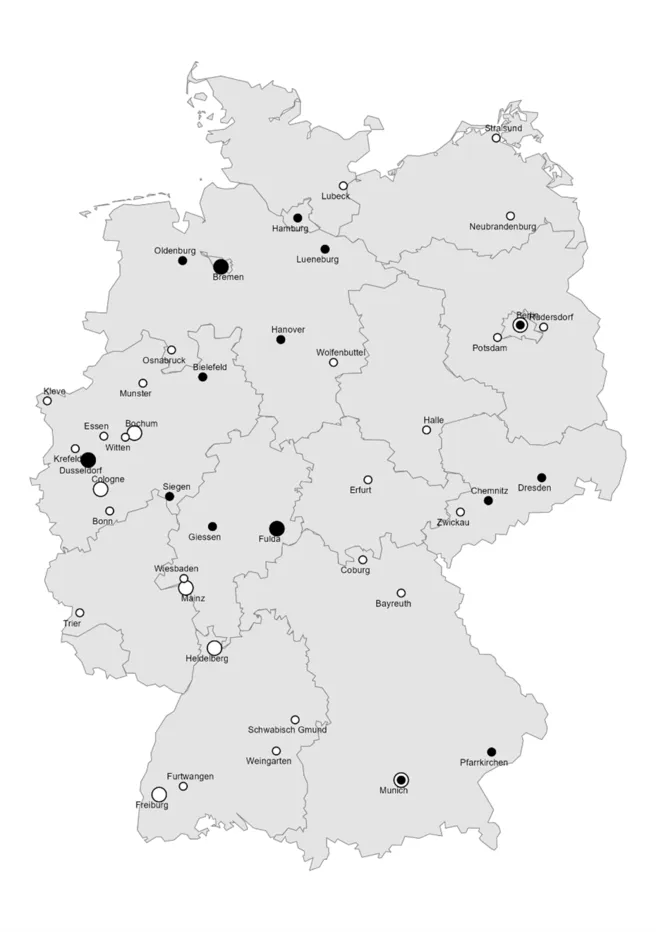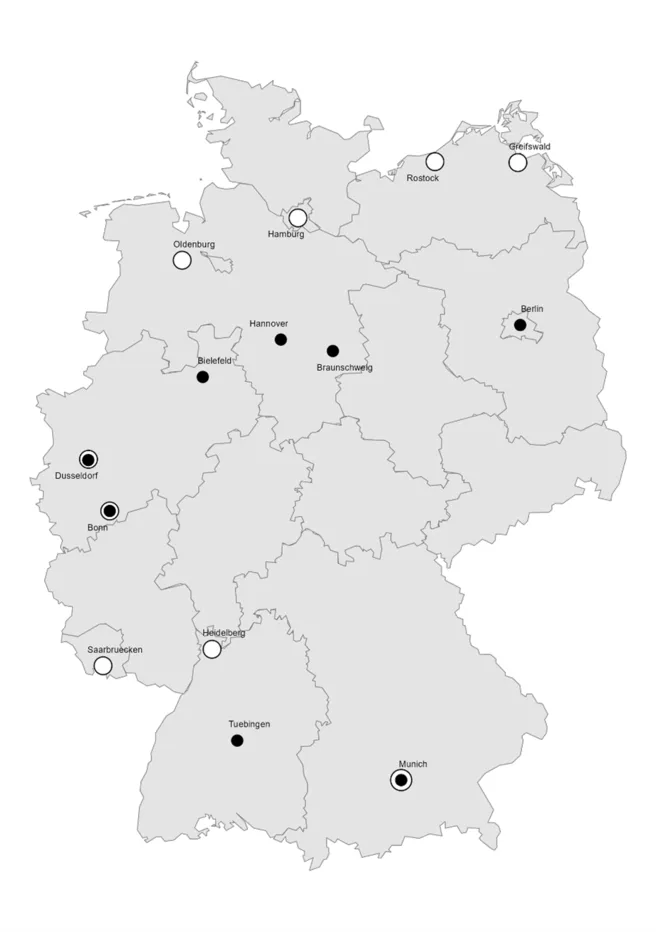Well-trained public health professionals are key to addressing both global and local public health challenges of the 21st century. This workforce demand is reflected by the increasing availability of academic population health science (PHS) and public health (PH) education programs in Germany. However, navigating this higher education landscape remains challenging. This is, in part, due to the lack of a comprehensive overview of existing educational programs.
In a systematic mapping study recently published in BMC Medical Education, Hanna Saturska (guest professor from Ternopil National Medical University, Ukraine, supported by the Philipp-Schwartz Initiative), Katrina Kufer, Sara Pedron, Gesa Meyer, Karl Emmert-Fees, Michael Laxy and Anna-Janina Stephan from the Professorship of Public Health and Prevention have now, for the first time, provided a comprehensive overview of the existing population health science (PHS) and public health (PH) master’s and structured doctoral programs in Germany, summarizing selected program characteristics, curricula and target competencies.
The study results show that out of 75 master’s and 18 structured doctoral PHS programs, 23 master’s and 8 doctoral programs focused specifically on PH. Courses on topics like public health, epidemiology, health systems (research) and research methods were common for the majority of the master’s programs, while courses on physical activity, behavioral science, nutrition, and mental health were offered less frequently. PH doctoral programs were very heterogeneous regarding curricula, entry, and publication requirements. There was a broad geographical distribution of programs across Germany, with educational clusters in Munich, Berlin, Bielefeld and Düsseldorf. Munich was found to be the only city offering both population health science and public health programs on both master’s and doctoral level. Berlin, Bielefeld and Düsseldorf offered both population health science and public health education, however, either only on doctoral or only on master’s level (see Figures 1&2).
This new study highlights that Germany offers a diverse landscape of PHS and PH master’s programs with heterogeneous curricula and target competencies. We hope that this overview can contribute to the development and improvement of PH education both in Germany and internationally, supporting educational offers in keeping up with the constantly evolving demands of the PH sector.

